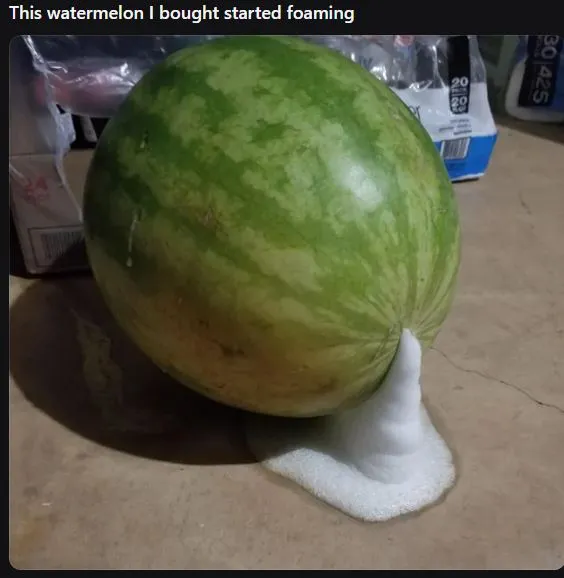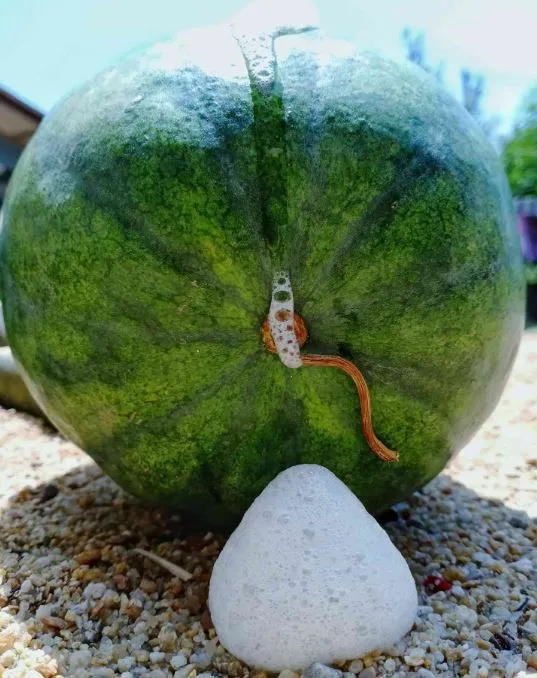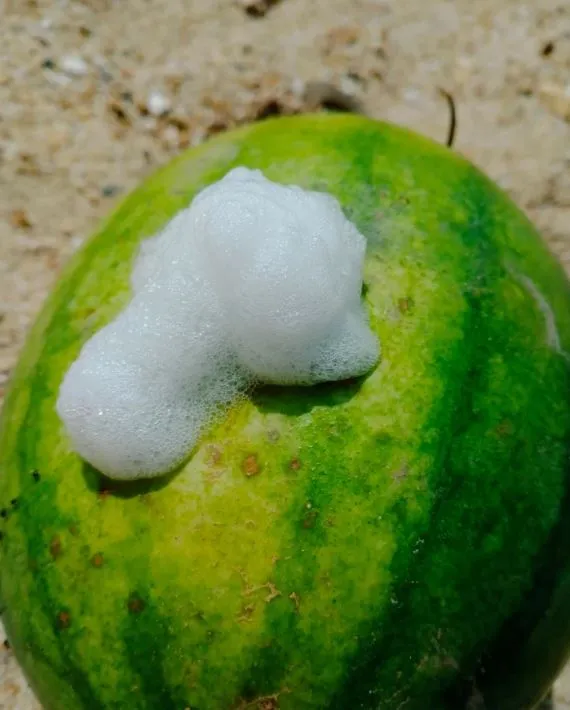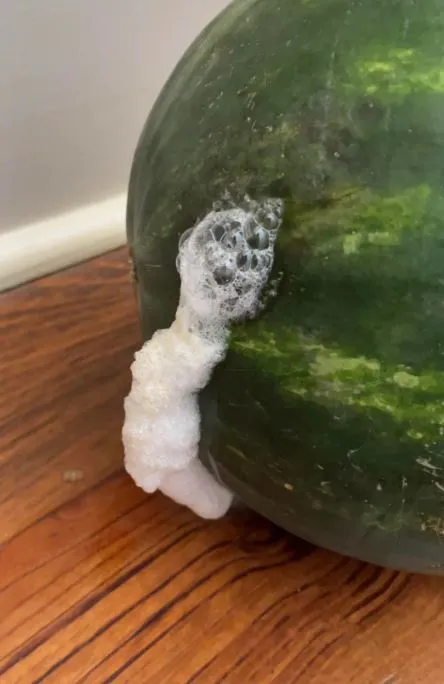Why are watermelons suddenly exploding? here’s everything you need to know about the causes, including bacterial infections and excessive growth.
Watermelons are a popular summer fruit known for their refreshing taste.
However, recent reports have raised concerns over a strange phenomenon: foaming and exploding watermelons.
Here’s what’s happening and why it’s important to understand this unusual issue.
What causes watermelons to foam and explode?
Several incidents of foaming watermelons have made their way onto social media, leaving many consumers concerned.

A user known as @JQMan4 shared on Reddit a post about their watermelons exploding, which quickly gained attention among viewers.
The post read: ‘This watermelon I bought started foaming”.
The photo showed the watermelon foaming even seemy exploding anytime.
Below the post, many were stunned by the unusual phenomenon of exploding watermelons and shared similar experiences.
One person said: ITS FOCKIN’ ROOOOOOTTTTENNNN!
A second wrote: That’s how they make watermelon soap
While a third commented: OP cut it open and post what’s going on inside that melon!
It’s gone bad. You don’t want to eat it. Throw it out. Someone else said.
Emily Durbin, a Florida resident, posted in a Facebook group in 2023 about her experience with a foaming watermelon.

She described how she found white foam and foul-smelling yellow juice oozing from the watermelon she had bought from Walmart. “It reminded me of vomit,” she said.
Many others chimed in, sharing similar experiences.
Some reported rotten melons oozing an awful smell, while others recounted watermelons exploding when cut open. So, what’s causing this?
Experts weigh in on the role of heat and fermentation
Keith Schneider, Ph.D., a professor at the University of Florida, explains that heat plays a significant role in this phenomenon. “If the fruit is slightly damaged, fermentation can begin,” he says. “Fermentation produces gas, which can create enough internal pressure to cause the watermelon to crack or pop.”
He attributes this to “excessive summer heat,” which is an unexpected consequence of climate change.

In the fermentation process, certain microorganisms convert sugar into alcohol, releasing CO2 gas. This gas causes bubbles, much like what happens during beer or wine fermentation. If the watermelon’s skin seals over, the pressure can continue to build, eventually causing an explosion.
Bacterial or fungal infections can also contribute
Dr. Steve Reiners, a horticulture expert from Cornell University, adds that bacterial or fungal infections can also cause watermelons to foam.
These infections typically occur when a small passage, left open after the fruit’s flower is pollinated, allows pathogens to enter.
If the passage heals over, pressure can build inside, causing the fruit to ooze or even explode.
Are foaming watermelons safe to eat?
While foaming watermelons may be intriguing to look at, they are not safe to eat.

According to Schneider, these watermelons are decaying, and it’s best to return them to the store or dispose of them. Reiners agrees, saying that if the melon smells bad, it’s likely rotten, and you should trust your nose.
Although plant diseases are not typically harmful to humans, some “soft rot bacteria” can cause mild discomfort, so it’s better to avoid eating a foaming watermelon.
If you come across a foaming or potentially exploding watermelon, it’s essential to avoid eating it. Return it to the store for a replacement or discard it.
Keep in mind that excessive heat and certain pathogens can cause these issues, and trusting your senses—especially your sense of smell—can help ensure the fruit is safe to consume. As this trend continues to catch attention, stay informed and cautious when selecting watermelons this summer.